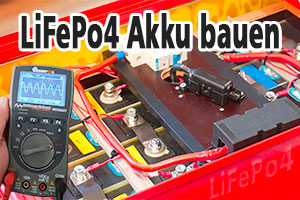Code:
/* Simple example for Teensy USB Development Board
* http://www.pjrc.com/teensy/
* Copyright (c) 2008 PJRC.COM, LLC
*
* Permission is hereby granted, free of charge, to any person obtaining a copy
* of this software and associated documentation files (the "Software"), to deal
* in the Software without restriction, including without limitation the rights
* to use, copy, modify, merge, publish, distribute, sublicense, and/or sell
* copies of the Software, and to permit persons to whom the Software is
* furnished to do so, subject to the following conditions:
*
* The above copyright notice and this permission notice shall be included in
* all copies or substantial portions of the Software.
*
* THE SOFTWARE IS PROVIDED "AS IS", WITHOUT WARRANTY OF ANY KIND, EXPRESS OR
* IMPLIED, INCLUDING BUT NOT LIMITED TO THE WARRANTIES OF MERCHANTABILITY,
* FITNESS FOR A PARTICULAR PURPOSE AND NONINFRINGEMENT. IN NO EVENT SHALL THE
* AUTHORS OR COPYRIGHT HOLDERS BE LIABLE FOR ANY CLAIM, DAMAGES OR OTHER
* LIABILITY, WHETHER IN AN ACTION OF CONTRACT, TORT OR OTHERWISE, ARISING FROM,
* OUT OF OR IN CONNECTION WITH THE SOFTWARE OR THE USE OR OTHER DEALINGS IN
* THE SOFTWARE.
*/
#include <avr/io.h>
#include <avr/pgmspace.h>
#include <stdint.h>
#include <util/delay.h>
#include "usb_serial.h"
#define LED_CONFIG (DDRE |= (1<<6)) // PE6 ist die grüne LED mic 5.2.2012
#define LED_ON (PORTE |= (1<<6))
#define LED_OFF (PORTE &= ~(1<<6))
#define CPU_PRESCALE(n) (CLKPR = 0x80, CLKPR = (n))
void send_str(const char *s);
uint8_t recv_str(char *buf, uint8_t size);
void parse_and_execute_command(const char *buf, uint8_t num);
#if 1
// Very simple character echo test
int main(void)
{
CPU_PRESCALE(0);
LED_CONFIG;
LED_ON;
usb_init();
_delay_ms(1000);
LED_OFF;
while (1) {
int n = usb_serial_getchar();
if (n >= 0) {
usb_serial_putchar(n+1);
}
}
}
#else
// Basic command interpreter for controlling port pins
int main(void)
{
char buf[32];
uint8_t n;
// set for 16 MHz clock, and turn on the LED
CPU_PRESCALE(0);
LED_CONFIG;
LED_ON;
// initialize the USB, and then wait for the host
// to set configuration. If the Teensy is powered
// without a PC connected to the USB port, this
// will wait forever.
usb_init();
while (!usb_configured()) /* wait */ ;
_delay_ms(1000);
while (1) {
// wait for the user to run their terminal emulator program
// which sets DTR to indicate it is ready to receive.
while (!(usb_serial_get_control() & USB_SERIAL_DTR)) /* wait */ ;
// discard anything that was received prior. Sometimes the
// operating system or other software will send a modem
// "AT command", which can still be buffered.
usb_serial_flush_input();
// print a nice welcome message
send_str(PSTR("\r\nTeensy USB Serial Example, "
"Simple Pin Control Shell\r\n\r\n"
"Example Commands\r\n"
" B0? Read Port B, pin 0\r\n"
" C2=0 Write Port C, pin 1 LOW\r\n"
" D6=1 Write Port D, pin 6 HIGH (D6 is LED pin)\r\n\r\n"));
// and then listen for commands and process them
while (1); {
send_str(PSTR("> "));
n = recv_str(buf, sizeof(buf));
if (n == 255) break;
send_str(PSTR("\r\n"));
parse_and_execute_command(buf, n);
}
}
}
#endif
// Send a string to the USB serial port. The string must be in
// flash memory, using PSTR
//
void send_str(const char *s)
{
char c;
while (1) {
c = pgm_read_byte(s++);
if (!c) break;
usb_serial_putchar(c);
}
}
// Receive a string from the USB serial port. The string is stored
// in the buffer and this function will not exceed the buffer size.
// A carriage return or newline completes the string, and is not
// stored into the buffer.
// The return value is the number of characters received, or 255 if
// the virtual serial connection was closed while waiting.
//
uint8_t recv_str(char *buf, uint8_t size)
{
int16_t r;
uint8_t count=0;
while (count < size) {
r = usb_serial_getchar();
if (r != -1) {
if (r == '\r' || r == '\n') return count;
if (r >= ' ' && r <= '~') {
*buf++ = r;
usb_serial_putchar(r);
count++;
}
} else {
if (!usb_configured() ||
!(usb_serial_get_control() & USB_SERIAL_DTR)) {
// user no longer connected
return 255;
}
// just a normal timeout, keep waiting
}
}
return count;
}
// parse a user command and execute it, or print an error message
//
void parse_and_execute_command(const char *buf, uint8_t num)
{
uint8_t port, pin, val;
if (num < 3) {
send_str(PSTR("unrecognized format, 3 chars min req'd\r\n"));
return;
}
// first character is the port letter
if (buf[0] >= 'A' && buf[0] <= 'F') {
port = buf[0] - 'A';
} else if (buf[0] >= 'a' && buf[0] <= 'f') {
port = buf[0] - 'a';
} else {
send_str(PSTR("Unknown port \""));
usb_serial_putchar(buf[0]);
send_str(PSTR("\", must be A - F\r\n"));
return;
}
// second character is the pin number
if (buf[1] >= '0' && buf[1] <= '7') {
pin = buf[1] - '0';
} else {
send_str(PSTR("Unknown pin \""));
usb_serial_putchar(buf[0]);
send_str(PSTR("\", must be 0 to 7\r\n"));
return;
}
// if the third character is a question mark, read the pin
if (buf[2] == '?') {
// make the pin an input
*(uint8_t *)(0x21 + port * 3) &= ~(1 << pin);
// read the pin
val = *(uint8_t *)(0x20 + port * 3) & (1 << pin);
usb_serial_putchar(val ? '1' : '0');
send_str(PSTR("\r\n"));
return;
}
// if the third character is an equals sign, write the pin
if (num >= 4 && buf[2] == '=') {
if (buf[3] == '0') {
// make the pin an output
*(uint8_t *)(0x21 + port * 3) |= (1 << pin);
// drive it low
*(uint8_t *)(0x22 + port * 3) &= ~(1 << pin);
return;
} else if (buf[3] == '1') {
// make the pin an output
*(uint8_t *)(0x21 + port * 3) |= (1 << pin);
// drive it high
*(uint8_t *)(0x22 + port * 3) |= (1 << pin);
return;
} else {
send_str(PSTR("Unknown value \""));
usb_serial_putchar(buf[3]);
send_str(PSTR("\", must be 0 or 1\r\n"));
return;
}
}
// otherwise, error message
send_str(PSTR("Unknown command \""));
usb_serial_putchar(buf[0]);
send_str(PSTR("\", must be ? or =\r\n"));
}







 Zitieren
Zitieren


Lesezeichen